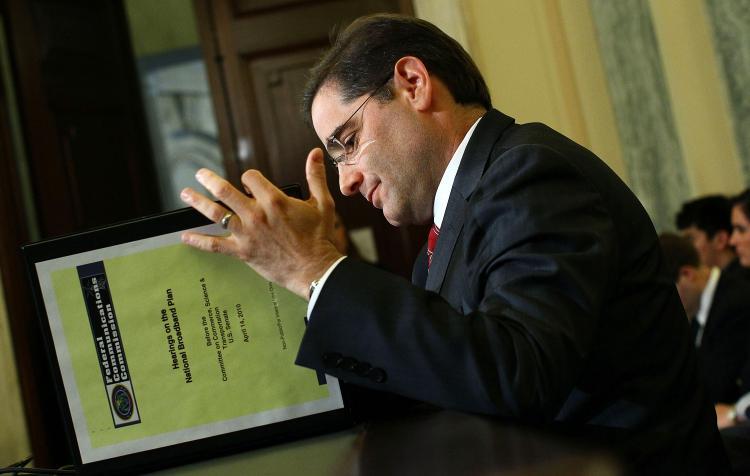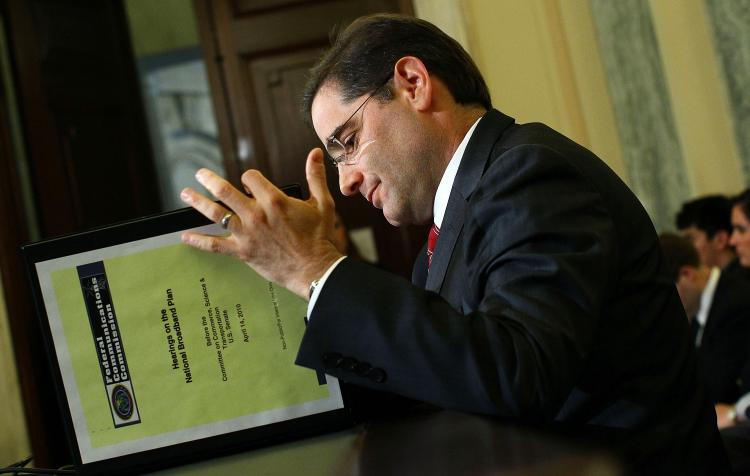The Senate Committee on Commerce, Science, and Transportation began its review Wednesday of the sweeping National Broadband Plan, proposed last month by the Federal Communications Commission (FCC).
The plan, which partners the FCC with businesses, investors, and entrepreneurs to support a “flourishing digital economy” and have the United States “lead the world in mobile innovation,” also aims at bringing affordable broadband services to over 100 million homes.
“Broadband is more than a technology; it is a platform for social and economic opportunity,” said Committee Chairman Sen. Jay Rockefeller (D-W.Va.). “With broadband networks we can change the way we approach job creation, education, health care, entertainment, and other things. We can change the way we connect with our communities around the world.”
But the National Broadband Plan goes much further than accessibility to broadband technology. The plan has a goal of extensively overhauling broadband systems and policies, regulating access, reforming telecommunications laws, and freeing up portions of the wireless spectrum for future expansion of services.
Parts of the plan call for voluntary relinquishing of portions of the wireless spectrum owned by private industries—such as television broadcasters—in an effort to free up the spectrum for use in future mobile wireless services.
“The plan begins by saying the government should play a limited role in the broadband ‘ecosystem,’ but then it follows up with dozens and dozens of recommendations to do exactly the opposite,” said committee member Sen. John Ensign (R-Nev.). “As I learn more and more about the National Broadband Plan, I see a lot more federal spending, a lot more FCC regulation, and a lot more government involvement in broadband.”
Net Neutrality
The FCC ran into a roadblock recently that could affect implementation of its broadband plan. The U.S. Court of Appeals for the District of Columbia Circuit ruled April 6 that the agency exceeded its authority in telling Comcast it could not block subscriber’s usage of certain peer-to-peer and file-sharing applications.
Advocates like Free Press’s “Save the Internet” project saw the defeat as a blow to its net neutrality stance, and the FCC plan. “The court decision is a stunning, sweeping defeat for the FCC and for its ability to protect consumers,” Marvin Ammori wrote on a recent SaveTheInternet.com blog posting.
“Tuesday’s decision also means the FCC cannot implement many aspects of its recently-issued National Broadband Plan, and the United States will continue to fall behind the rest of the world with far slower, more expensive, and less innovative broadband service, strangling our economy and harming our democracy.”
Net neutrality is a principle aimed at keeping the Internet and the exchange of information free and clear; protecting the consumer and not allowing Internet service providers (ISP) to discriminate between types of data or online services.
Implementing the FCC’s broadband plan will benefit big business since its goals require a large expansion of fiber optic technology provided by companies like AT&T and Verizon. Complementing this would be an increase in sales for Cisco Systems and Juniper Networks, providers of network devices that manage Internet Protocol (IP) traffic.
The FCC’s ambitious National Broadband Plan includes six specific goals, to be implemented by 2020:
1) Bring affordable broadband access to over 100 million American homes, at speeds of at least 100 megabits per second (MBs) download, 50 MBs upload. Present speeds offered by commercial broadband vendors fall into the range of 1 – 20 MBs download, 256 KBs -1 MBs upload
2) Implement the fastest and most extensive world-leading mobile wireless networks
3) Provide every American with the means to have affordable access to broadband services
4) Provide communities with access to at least 1 gigabit per second (GBs) as a backbone for institutions, such as schools, hospitals, and government buildings
5) Access for emergency services and first responders to a nationwide public safety wireless network
6) Provide Americans the ability to use broadband to monitor and manage real-time energy consumption
The plan can be reviewed here





